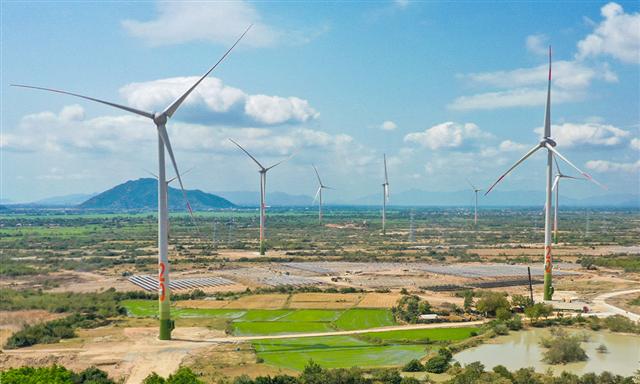Phu Kham mining project boosts local farmers’ incomes
Phu Kham mining project boosts local farmers’ incomes
Farmers of Nam Gnone and Nam Mo villages in Anouvong district, Xaysomboun province this year will earn more than seven billion kip from selling their agricultural production to the Phu Kham mining project.
From January to April this year, the Phu Kham mining project under Phu Bia Mining Company bought over 2.67 billion kip of agricultural production from farmers in these villages, the project reported during a media visit to the site last week.
Most of the agricultural production includes vegetables, oranges, pineapples, melons, eggs, fish and drinking water.
The produce is grown without chemicals with the farmers receiving training from the National Agriculture and Forestry Research Institute (NAFRI).
The company had also supported livestock breeding for farmers especially cattle, pigs and goats by providing pregnant animals, with the offspring to given to other families after the first families benefited, Nam Gnone village Head, Mr Siphandone Lorchongteng said.
“At present, there are 120 farming families involved in producing crops, 10 families are breeding goats, eight families have pigs and three families have cattle,” he reported.
Income from selling crops has helped improve the living standards of farming families in the groups and they could save to buy everyday necessities and educate their children.
Many families have better living conditions but have limited land for agricultural production.
“Different families are still growing their crops for the community market, while some need to expand their area for planting,” Mr Siphansone said.
“Under an agreement between local authorities and company officials, we have established the village community centre for buying agricultural production from farmer groups every Thursday to sell to the company,” he explained.
Meanwhile, Nam Mo village comprises 70 farming families including a fish breeding group.
A model family of the group, Mr Phommy Sivanla told the media he earned about 8-9 million kip a month from selling fish and he also received some income from selling organic vegetables to the company.
In the past, he bought fingerings from the city to release in his ponds but now he is able to breed fingerlings by himself after he was trained by fisheries technicians supported by the project.
The training taught him to change from traditional breeding to better techniques to increase his returns.














